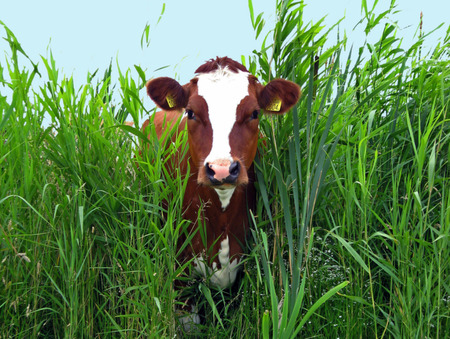Grass Fed Whey Protein – Good? Or a Waste?
With the many in the health community advocating the consumption of grass fed cows, I wondered if there were any benefits to using grass fed whey instead of the normal whey protein products available on the market.
According to my research however, it may not necessarily be so.
Here are 2 main reasons why it could be a waste:
1. Whey protein has little or no essential fatty acids
One of the benefits of grass fed beef is that it contains more Omega 3 and CLA (Conjugated Linoleic Acid). There’s little or no fat in whey protein however, especially the isolates.
2. Whey protein has no vitamins or minerals
Another benefit of grass fed beef is that it has a better micronutrient profile. Whey protein is just, well, protein, so the increased micronutrient amounts does not carry into the product.
Then there’s the small issue of cost. There are some grass fed protein products out there that’s just marginally more expensive their traditional counterparts, but most of them don’t come in value for money bulk packaging, like Optimal Nutrition’s 4.5kg (10lb) bags. When that’s taken into account, grass fed whey can sometimes be twice as expensive.
On the flip side, the above reasons don’t account for one major issue with grain fed livestock.
It’s no secret that grain is used because of 2 reasons:
- It’s cheap
- It’s increases ‘yield’, meaning you get more meat/milk etc
Yeap. Apart from growth hormones and yucky antibiotics, grains also helps make animals bigger.
Interestingly enough, it seems like for a long time, nobody thought to ask why this is so. We get concerned when we get bigger, but we’re happy when we get more meat and milk. M&Ms. hahahaha.
Ok nevermind.
What I’m saying is that you get more meat by feeding grains because the animals are quite literally getting inflammed…and inflammation is the underlying cause of most modern health problems.
So, while it’s clear that you’re not really getting any more benefits in consuming grass fed whey, the thing I’m not sure about is this:
Are the inflammatory effects transferred into whey?
In other words, do I get the inflammatory ‘badness’ present in the cow through the whey as if I were having grain fed steak, or are the inflammatory components removed from the whey protein during production?
I personally feel that this distinction between grass and grain fed whey is important, and it’s the one that will help decide whether one should make the switch to grass fed whey protein.
Unfortunately, I can’t find seem to find any information that can make that distinction, other than marketing material from grass fed whey sellers; There’s no research in this area and the existing whey companies aren’t gonna shot themselves in the foot anytime soon.
I guess, at least for the moment, it all comes down to your beliefs..and your wallet.
If you can and are willing to part with a little more cash, I don’t see why it isn’t good to play safe and go with grass fed whey protein. It’s also one more avenue to support the ‘grass fed industry’, by increasing demand, which will in turn encourage production and bring down prices in the future.
If you can’t or are not willing to spend the money though, I don’t see a very big issue with existing whey poducts. You can always supplement with Omega 3s if you’re still concerned about inflammation, and I believe the effects of active Omega 3 supplementation will definitely trump over the effects of inflammatory whey, if it is in fact inflammatory, by a huge margin anyday.
Conclusion
– Benefits of grass fed meats are not present in grass fed whey
– Unknown if inflammatory drawbacks of grain fed meats are present in whey
– Choice of grass fed or standard whey still up to individual budget and beliefs
Where to get Grass Fed Whey?
US/Can – Amazon.com
US/Can/Worldwide – iHerb.com

You forget to mention that non grass fed cows are stuffed corn, which are genetically modified and here’s where your milk comes into play.FRANKEN FOOD NOT GOOD FOR ANIMALS LET ALONE HUMANS…
Honestly, the jury is still out on GMOs. IMHO, most of it is fear based and unsubstantialised.
GMOs has its placed. It has made much hardier crops and have allowed more people in the world to be fed.
As for frankenfood… most of the crops we have now were also went through selective breeding, so, in a way, even most of the non lab-modified crops are also frankenfoods.